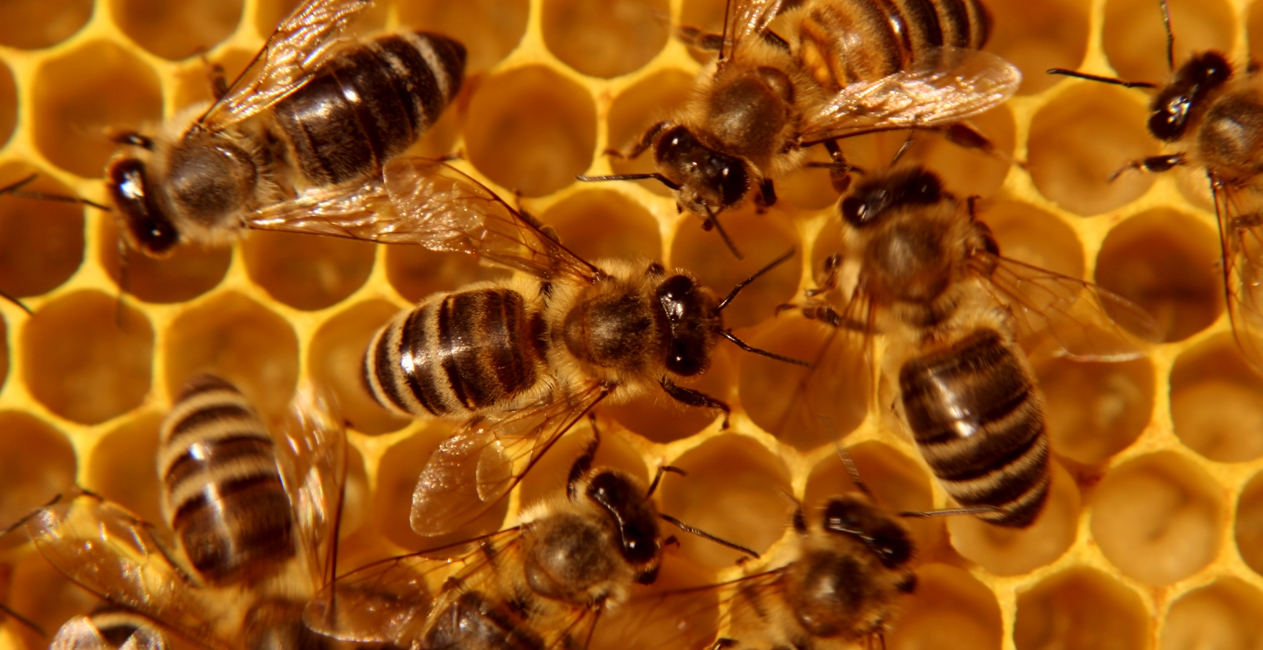The queen remains in the middle of a rugby ball shaped cluster of bees and will start laying new eggs to replace bees that died during the winter.


It's hard to say exactly how long honey has been in existence because it's so long ago. Paintings in a cave in Spain show evidence that humanity has been beekeeping since 7000 years Before Christ (BC). However, fossils of bees have been discovered and dated back to around 150 million years ago. It’s incredible to think that the magic and importance of honey in history originated so long ago!
The earliest record of keeping bees in hives comes from a temple called the 'sun temple' near Cairo in Egypt and dates back to 2400BC. Pictures of bees often appear in hieroglyphs in Egypt and were favoured by the Pharaohs and symbolised at royal level.
The ancient Egyptians used honey as a sweetener and as a gift to their gods and even as an ingredient in fluids used to anoint the body after death. Egyptians would cook cakes using honey as one of the ingredients and offer them to their gods as an offering to appease them. Later, the Greeks followed the tradition with their gods.
The Greeks saw honey as being important not only as part of their food, but also as part of their medicine for healing weakness. There is evidence of honey being used in ancient Greek recipes including honey cakes, and cheese and honey cakes.
In addition, the Romans used honey as a gift to the gods and used it extensively in cooking. Throughout the Roman empire the process of beekeeping thrived amongst the Romans.
Once Christianity was established, there was a huge increase in the use of honey and wax to meet the demand for church candles.
The advent of sugar during a period in history called the Renaissance meant that the use of honey decreased. In the 17th century, sugar was used more for sweetening drinks and foods.
For further information on bees contact the Welsh Beekeepers Association. The organisation works with a number of associations, including schools, to promote bees in Wales. https://wbka.com/